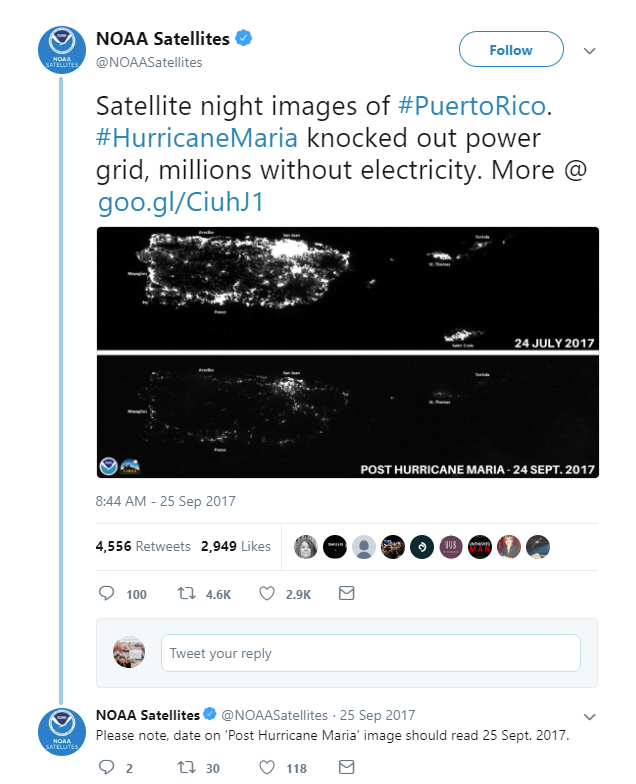Please read……Important piece on Renewable energy for Puerto Rico co-authored with my colleagues Jorge L Colón & Arturo Massol-Deyá @Resilience_NU @NU_PolicySchool @NUESSBoston https://t.co/YZhE55YVgt
— Jennie C. Stephens (@jenniecstephens) October 5, 2018
The path to bring resilience to Puerto Rico | Science Magazine Editorial
“Puerto Rico is not prepared for another hurricane.”
So begins an editorial published in Science Magazine, co-authored by Global Resilience Institute (GRI) Director for Strategic Research Collaborations Dr. Jennie Stephens, University of Puerto Rico-Mayagüez Professor Arturo Massol-Deyá, and University of Puerto Rico-San Juan Professor Jorge L. Colón. The piece examines the vulnerability of Puerto Rico’s energy infrastructure, highlights some of the community-level transformations that are taking place, and illustrates the path forward for a more secure and resilient future.
When Hurricane Maria hit the island in September 2017, it resulted in the longest-lasting power outage in United States history, and caused more than $90 billion in damage. Some of the island’s more than 3 million residents remain on the path to recovery today, more than one year later.
“But disruptions create possibilities for change,” the editorial’s authors point out. “Hurricane María brought an opportunity to move away from a fossil fuel–dominant system and establish instead a decentralized system that generates energy with clean and renewable sources. This is the path that will bring resilience to Puerto Rico.”
CLICK HERE to read the full piece in Science Magazine.

